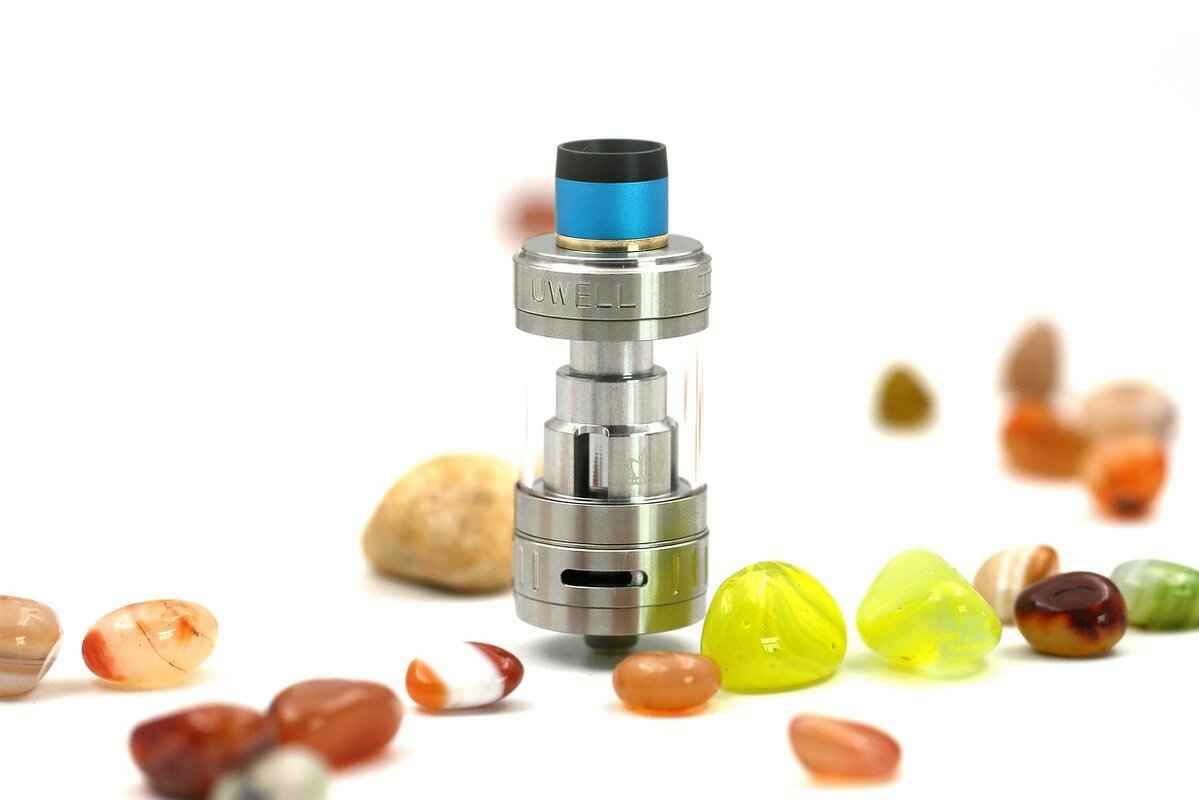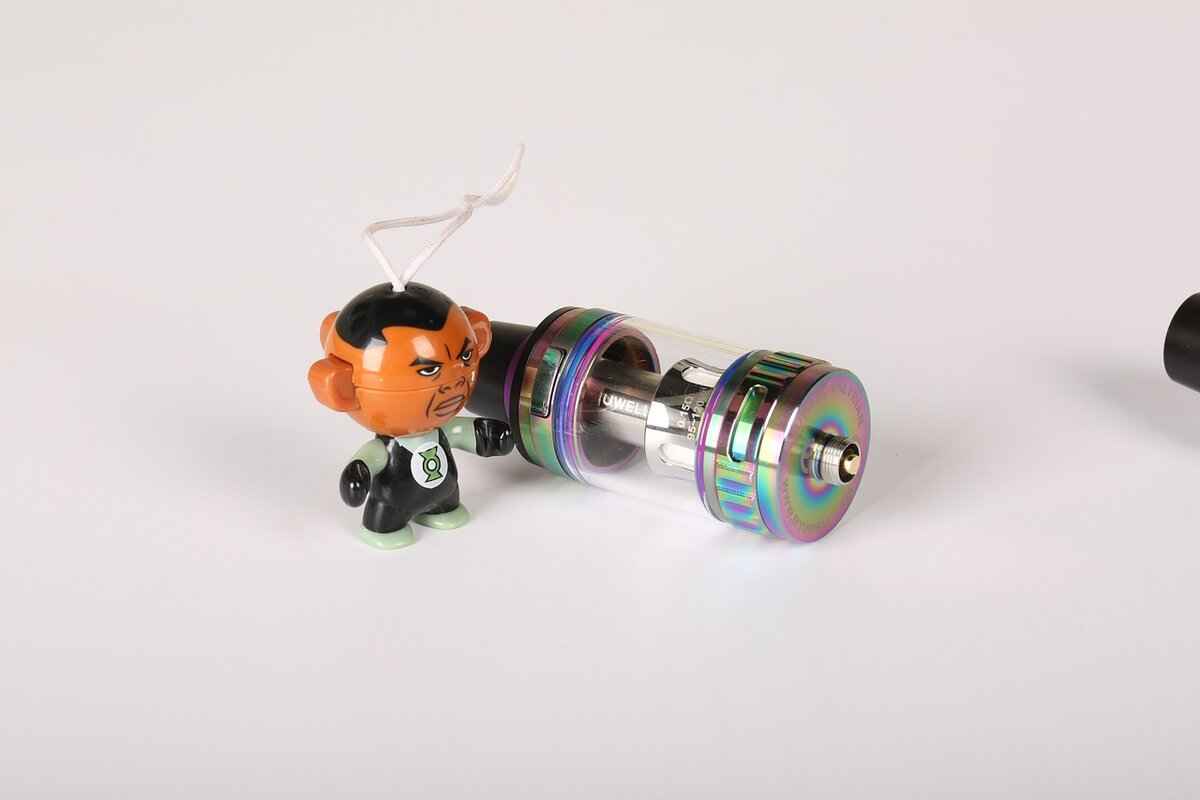This article explores the intersection of vaping and healthy eating, providing insights on maintaining wellness while using vape products. Learn how to make informed choices for your lifestyle.
Understanding vaping is crucial for assessing its impact on health. Vaping involves inhaling vapor produced by an electronic device, often containing nicotine, flavorings, and other chemicals. While some view it as a safer alternative to smoking, research indicates potential health risks, including respiratory issues and cardiovascular effects.
Vaping can alter taste perception and appetite. Many vapers report a decrease in their ability to taste food, which can lead to poor dietary choices. Additionally, the act of vaping may suppress appetite temporarily, resulting in irregular eating patterns. It is essential for vapers to practice mindful eating to ensure they are meeting their nutritional needs.
Certain nutrients can help mitigate the adverse effects of vaping. Key vitamins and minerals such as vitamin C, vitamin E, and omega-3 fatty acids are crucial for maintaining overall health. These nutrients can support the immune system and counteract oxidative stress caused by vaping.
Maintaining a balanced diet is vital for everyone, including vapers. Practical strategies include incorporating a variety of fruits, vegetables, whole grains, and lean proteins. Planning meals ahead and avoiding processed foods can also help vapers stay on track with their dietary goals.
Combining vaping with poor dietary choices can exacerbate health issues. A diet high in sugars and fats can lead to weight gain and other health complications, especially when coupled with the negative effects of vaping. It is essential to prioritize nutritious foods to support overall wellness.
Choosing the right snacks can enhance your vaping experience. Opt for nutrient-dense options such as nuts, fruits, and yogurt. These snacks can satisfy cravings without compromising health, providing energy and essential nutrients.
Staying hydrated is essential, especially for vapers. Vaping can lead to dehydration, making it crucial to drink plenty of water. Proper hydration supports overall health, aids in digestion, and can improve skin health, counteracting some negative effects of vaping.
Exercise is a key component of a healthy lifestyle. Regular physical activity can benefit vapers by improving lung capacity, enhancing mood, and helping to manage weight. Incorporating a mix of cardiovascular and strength-training exercises can promote overall wellness.
Knowledge is power when it comes to vaping and nutrition. Utilize reliable resources such as health websites, nutritionists, and scientific studies to educate yourself. Understanding the implications of vaping on health and nutrition can empower you to make informed choices.
Understanding the long-term implications of vaping on dietary habits is crucial. Some studies suggest that prolonged vaping could lead to chronic health issues, impacting metabolism and the body’s ability to process nutrients effectively. Staying aware of these potential risks can motivate vapers to adopt healthier lifestyle choices.

What is Vaping and How Does it Affect Health?
Understanding vaping is essential for evaluating its implications on health. Vaping refers to the act of inhaling vapor produced by an electronic cigarette or similar device. Unlike traditional smoking, which involves burning tobacco, vaping utilizes a liquid solution, commonly known as e-liquid or vape juice. This liquid typically contains a mixture of propylene glycol, vegetable glycerin, flavorings, and often nicotine.
The components of vaping play a significant role in determining its health effects. The primary ingredient, nicotine, is a highly addictive substance that can lead to various health issues. Regular exposure to nicotine may result in increased heart rate, elevated blood pressure, and potential cardiovascular problems. Additionally, the flavorings used in e-liquids can contain harmful chemicals, which, when heated, may produce toxic substances.
One major concern associated with vaping is the potential health risks it poses. Research has indicated that vaping can lead to respiratory issues, as the inhalation of vapor can irritate the lungs. Studies have shown that some vapers experience symptoms similar to those found in traditional smokers, such as chronic cough and shortness of breath. Furthermore, the long-term effects of vaping are still largely unknown, raising questions about its safety.
Moreover, vaping has been linked to an increased risk of developing addiction, particularly among young individuals. The accessibility and appealing flavors of e-liquids can attract younger demographics, leading to an increase in nicotine dependence. This trend is concerning, as early exposure to nicotine can affect brain development and lead to long-term addiction.
In addition to the physical health risks, vaping can also have psychological effects. Many individuals may use vaping as a coping mechanism for stress or anxiety, potentially leading to a cycle of dependence. It is essential to recognize these patterns and address them through healthy coping strategies.
In conclusion, while vaping is often perceived as a safer alternative to smoking, it is crucial to understand the health implications associated with its use. The components of vaping, particularly nicotine and harmful chemicals found in e-liquids, pose significant health risks. As research continues to evolve, it becomes increasingly important for users to make informed choices regarding their vaping habits and consider the long-term effects on their health.

How Does Vaping Influence Nutritional Choices?
Vaping has become increasingly popular in recent years, and while many users enjoy the experience, it can have significant effects on their dietary habits. One of the primary ways vaping influences nutrition is through altered taste perception and changes in appetite. Understanding these effects is crucial for vapers who want to maintain a healthy lifestyle.
Research indicates that the chemicals in vape liquids can temporarily dull the senses, particularly taste. This alteration can lead to a decreased enjoyment of food, prompting individuals to seek out stronger flavors or unhealthy options to compensate. For instance, a vaper may find that their favorite fruits or vegetables taste less appealing, leading them to opt for processed snacks that are high in sugar and unhealthy fats.
Vaping can also influence appetite. Many vapers report experiencing reduced hunger, which may sound beneficial at first. However, this decrease can lead to skipped meals or inadequate nutrition. When the body does not receive the necessary nutrients, it can result in fatigue, lack of energy, and other health issues. It’s essential for vapers to be mindful of their eating habits and ensure they consume balanced meals.
Mindful eating is an approach that encourages individuals to pay attention to their food choices and the sensations associated with eating. For vapers, practicing mindfulness can help combat the negative effects of altered taste and appetite. Here are some strategies:
- Focus on Flavor: Experiment with different herbs and spices to enhance the taste of meals, making them more enjoyable.
- Stay Hydrated: Drinking plenty of water can help refresh taste buds and improve overall well-being.
- Listen to Your Body: Pay attention to hunger cues and eat when you feel the need, rather than skipping meals.
Maintaining a balanced diet is essential for vapers. Here are some tips to help you make healthier choices:
- Include a Variety of Foods: Aim to incorporate fruits, vegetables, whole grains, and lean proteins into your diet.
- Limit Processed Foods: Try to reduce the intake of sugary and high-fat snacks, which can be more appealing when taste perception is altered.
- Plan Your Meals: Preparing meals in advance can help ensure you have healthy options readily available, reducing the temptation to choose quick, unhealthy snacks.
Being aware of how vaping affects your appetite and taste can lead to better food choices. By monitoring your nutritional intake, you can avoid potential health risks associated with poor dietary habits. The combination of vaping and a poor diet can exacerbate health issues, making it crucial for vapers to prioritize their nutrition.
In conclusion, while vaping may alter taste perception and appetite, it is possible to maintain a healthy diet by being mindful of food choices. By focusing on nutrition, practicing mindful eating, and being aware of the effects of vaping, individuals can support their overall health and well-being.

What Nutrients Are Essential for Vapers?
Understanding the nutritional needs of vapers is essential for promoting overall health and well-being. While vaping is often perceived as a safer alternative to smoking, it still poses certain health risks. Therefore, incorporating a variety of nutrients can help mitigate some of these adverse effects. This section will explore the key vitamins and minerals that are particularly beneficial for individuals who vape.
Vaping can lead to oxidative stress and inflammation in the body. Adequate intake of essential nutrients can help counteract these effects and support the body’s natural defenses. Below are some vital nutrients that every vaper should consider including in their diet:
| Nutrient | Benefits | Food Sources |
|---|---|---|
| Vitamin C | Boosts the immune system and combats oxidative stress. | Citrus fruits, strawberries, bell peppers, broccoli. |
| Vitamin E | Acts as an antioxidant and protects cells from damage. | Nuts, seeds, spinach, and avocados. |
| Omega-3 Fatty Acids | Reduces inflammation and supports heart health. | Fatty fish, flaxseeds, walnuts, and chia seeds. |
| Magnesium | Supports muscle and nerve function, and helps manage stress. | Leafy greens, nuts, seeds, and whole grains. |
| Zinc | Essential for immune function and healing. | Meat, shellfish, legumes, and seeds. |
Each nutrient plays a unique role in enhancing health:
- Vitamin C helps to repair tissues and maintain healthy skin, which can be affected by vaping.
- Vitamin E protects against cellular damage caused by free radicals that may be produced during vaping.
- Omega-3 Fatty Acids are known to reduce inflammation, which is crucial for lung health.
- Magnesium can help alleviate stress and anxiety, which some individuals may experience while vaping.
- Zinc is vital for maintaining a strong immune system, especially important for vapers who may be at a higher risk for respiratory issues.
While focusing on essential nutrients is important, vapers should also pay attention to their overall dietary habits. Staying hydrated is crucial, as vaping can lead to dehydration. Drinking plenty of water and incorporating hydrating foods, such as cucumbers and watermelon, can promote better health. Furthermore, avoiding excessive consumption of processed foods and sugars can help maintain a balanced diet.
In conclusion, understanding the essential nutrients for vapers can lead to better health outcomes. By prioritizing vitamins and minerals, individuals who vape can support their body’s resilience against the adverse effects of vaping. Incorporating a variety of nutrient-rich foods into daily meals can significantly enhance overall well-being.

How Can Vapers Maintain a Balanced Diet?
Maintaining a balanced diet is vital for everyone, including vapers. As vaping becomes increasingly popular, it is essential to understand how it can influence dietary choices and overall health. This section outlines practical strategies for incorporating a variety of foods while managing vaping habits.
First and foremost, mindful eating is crucial for vapers. Many individuals may experience altered taste perceptions due to vaping, which can lead to cravings for unhealthy snacks. To combat this, it is important to focus on consuming a wide range of nutritious foods. Incorporating fruits, vegetables, whole grains, and lean proteins can help maintain a balanced diet. Here are some practical tips:
- Plan Your Meals: Creating a weekly meal plan can help you make healthier choices and avoid impulsive snacking.
- Incorporate Variety: Aim to include different colors and types of foods in your diet. This not only improves nutrient intake but also keeps meals interesting.
- Healthy Snacking: Choose snacks that are rich in fiber and protein. Options like nuts, yogurt, and fresh fruits can satisfy cravings without compromising health.
- Stay Hydrated: Drinking plenty of water can help mitigate the dry mouth often associated with vaping and can also curb unnecessary snacking.
Additionally, being aware of the nutritional content of the foods you consume is essential. Reading labels and understanding portion sizes can empower you to make informed choices. For example, opting for whole foods over processed alternatives can significantly improve your nutrient intake.
Moreover, vapers should pay attention to specific nutrients that can support their health. Vitamins such as Vitamin C and Vitamin E can help combat oxidative stress, while Omega-3 fatty acids can support lung health. Incorporating foods rich in these nutrients, like fatty fish, nuts, and leafy greens, can be beneficial.
It is also important to recognize the social aspects of eating. Many people enjoy socializing over meals, and vapers should not feel isolated due to their habits. Engaging in healthy eating practices with friends can create a supportive environment. Consider organizing potlucks where everyone brings a healthy dish, or explore new recipes together.
Finally, it is essential to listen to your body. Pay attention to how different foods affect your vaping experience and overall well-being. If certain foods seem to enhance cravings or discomfort, it may be worth adjusting your diet accordingly.
In conclusion, maintaining a balanced diet as a vaper involves a combination of mindful eating, meal planning, and being aware of nutritional needs. By incorporating a variety of wholesome foods and staying hydrated, vapers can support their health while enjoying their lifestyle choices.

What are the Risks of Combining Vaping and Poor Nutrition?
Combining vaping with poor dietary choices can significantly exacerbate health issues. As vaping becomes more prevalent, understanding its implications on nutrition is essential for maintaining overall wellness. This section delves into the potential risks associated with this combination and encourages healthier lifestyle decisions.
Vaping involves inhaling vapor produced by electronic cigarettes or similar devices. While marketed as a safer alternative to traditional smoking, it is not without risks. Nicotine, a common component in vape products, can lead to increased heart rate and blood pressure, which may be further compounded by poor dietary habits.
When individuals who vape also engage in poor nutritional choices, they may face heightened health risks. A diet lacking in essential nutrients can weaken the immune system, making the body less capable of combating the harmful effects of vaping. For instance, deficiencies in vitamins A, C, and E, which are crucial for maintaining healthy tissues, may lead to increased vulnerability to respiratory issues.
Vaping can alter taste perception and appetite, often leading to increased cravings for unhealthy foods. This change can result in a cycle of poor eating habits that further impacts health. As vapers may turn to sugary snacks to satisfy cravings, they risk developing conditions such as obesity and diabetes, which are already linked to vaping.
Over time, the combination of vaping and poor nutrition may lead to chronic health issues. Studies suggest that individuals who vape and consume a diet high in processed foods may experience a higher incidence of cardiovascular diseases and respiratory problems. This is due to the synergistic effects of nicotine and unhealthy dietary fats, which can lead to arterial plaque buildup.
To mitigate these risks, it is essential for vapers to focus on a balanced diet rich in fruits, vegetables, whole grains, and lean proteins. Incorporating nutrient-dense foods can help counteract some of the negative effects of vaping. Additionally, staying hydrated is crucial, as it can aid in flushing out toxins and maintaining overall health.
Practicing mindful eating can also play a significant role in improving dietary habits for those who vape. This involves being aware of hunger cues, making conscious food choices, and avoiding emotional eating. By fostering a deeper connection with food, vapers can make healthier decisions that support their well-being.
For individuals looking to improve their dietary choices while vaping, seeking support from nutritionists or health professionals can be beneficial. Many resources are available that focus on the intersection of vaping and nutrition, providing guidance on how to maintain a healthy lifestyle.
In summary, the risks associated with combining vaping and poor nutrition are significant and multifaceted. By understanding these risks and making informed choices, individuals can enhance their health and well-being. Emphasizing a balanced diet and mindful eating practices is crucial for vapers aiming to mitigate the adverse effects of their habits.

How to Choose Healthy Snacks While Vaping?
When it comes to enhancing your vaping experience, choosing the right snacks plays a pivotal role. Not only can the right snacks satisfy your cravings, but they can also contribute to your overall health, ensuring that your lifestyle remains balanced. This section delves into practical tips for selecting nutritious options that align with your vaping habits without compromising your well-being.
Healthy snacks are essential for vapers as they can help mitigate some of the negative effects associated with vaping. Many individuals may experience changes in their appetite or taste preferences due to vaping, which can lead to poor dietary choices. By opting for nutritious snacks, you can maintain your energy levels and support your body’s needs.
- Fruits and Vegetables: Fresh fruits and crunchy vegetables are excellent choices. They are rich in vitamins, minerals, and antioxidants, which can help counteract some of the oxidative stress caused by vaping.
- Nuts and Seeds: Packed with healthy fats, protein, and fiber, nuts and seeds can keep you feeling full longer. They are also great for satisfying cravings without resorting to unhealthy options.
- Whole Grains: Snacks like whole-grain crackers or popcorn provide essential carbohydrates and can help maintain your energy levels throughout the day.
- Yogurt and Cheese: These dairy options are not only delicious but also rich in calcium and protein, promoting bone health and muscle maintenance.
Managing cravings while vaping can be challenging, but with the right approach, it’s entirely achievable. Here are some strategies:
1. **Stay Mindful:** Pay attention to your cravings and try to distinguish between genuine hunger and a desire triggered by vaping.2. **Portion Control:** Prepare snacks in advance and keep them portioned to avoid overeating.3. **Stay Hydrated:** Sometimes, feelings of hunger can be mistaken for thirst. Drinking water can help curb unnecessary snacking.
Opting for healthy snacks not only satisfies your cravings but also provides numerous health benefits. These include:
- Improved Energy Levels: Nutritious snacks help sustain energy throughout the day, keeping you alert and focused.
- Better Mood: A well-balanced diet can positively affect your mood and mental clarity, making your vaping experience more enjoyable.
- Reduced Health Risks: Consuming healthy snacks can lower the risk of chronic diseases, which is particularly important for those who vape.
Creating a balanced snack plan involves understanding your body’s needs and preferences. Consider the following:
- Personal Preferences: Choose snacks that you genuinely enjoy to make it easier to stick to your plan.
- Variety is Key: Incorporate a wide range of foods to ensure you get a variety of nutrients.
- Plan Ahead: Prepare snacks in advance to avoid reaching for unhealthy options when cravings strike.
In summary, making informed choices about your snacks can significantly enhance your vaping experience. By selecting nutritious options and managing cravings effectively, you can enjoy your vaping habits while maintaining a healthy lifestyle.

Can Hydration Counteract Vaping Effects?
Staying properly hydrated is crucial for everyone, but it holds particular significance for those who vape. This section delves into the importance of hydration and how it can help counteract some of the adverse effects associated with vaping.
Vaping can lead to dehydration for several reasons. Firstly, the inhalation of vapor can cause dryness in the mouth and throat, which may lead to a feeling of thirst. Additionally, the ingredients in many vape liquids can have a diuretic effect, further contributing to fluid loss. Therefore, it is essential for vapers to be mindful of their hydration levels.
Why is Hydration Important?
- Maintains bodily functions: Water is vital for various bodily functions, including temperature regulation, nutrient transportation, and waste removal.
- Supports skin health: Staying hydrated can improve skin elasticity and moisture, which may be negatively affected by vaping.
- Aids in digestion: Proper hydration helps in the digestion of food and absorption of nutrients, which is especially important for vapers who may experience changes in appetite.
How Much Water Should Vapers Drink?
The general recommendation is to consume at least 8-10 cups (about 2-2.5 liters) of water daily. However, individual needs may vary based on factors such as activity level, climate, and overall health. A good rule of thumb is to drink water whenever you feel thirsty and to increase intake during and after vaping sessions.
Tips for Staying Hydrated:
- Carry a water bottle: Keeping a refillable water bottle handy can serve as a reminder to drink water throughout the day.
- Set hydration goals: Use apps or reminders to track your water intake and ensure you meet your daily hydration goals.
- Infuse your water: If plain water seems boring, consider adding fruits or herbs for flavor, making it more enjoyable to drink.
In addition to drinking water, incorporating hydrating foods into your diet can also help. Foods such as cucumbers, watermelon, oranges, and strawberries have high water content and can contribute to your overall hydration.
Can Hydration Improve Vaping Experience?
Many vapers report that staying hydrated enhances their overall experience. Proper hydration can help in reducing throat irritation and dryness, making the act of vaping more enjoyable. Furthermore, being well-hydrated can help maintain energy levels and focus, which may be beneficial for those who vape for relaxation or stress relief.
In conclusion, hydration plays a vital role in promoting overall health and wellness, especially for vapers. By prioritizing water intake and being mindful of hydration, individuals can mitigate some of the negative effects of vaping and improve their overall quality of life. Remember, staying hydrated is not just a recommendation; it is a fundamental aspect of maintaining a healthy lifestyle.

What Role Does Exercise Play for Vapers?
In the quest for a healthier lifestyle, exercise emerges as a fundamental pillar, especially for those who vape. Regular physical activity not only enhances physical fitness but also plays a significant role in mitigating some of the adverse effects associated with vaping. This section delves into the multifaceted benefits of exercise for vapers, emphasizing how it can complement their dietary choices and overall well-being.
How Does Exercise Impact Lung Health for Vapers?
Vaping can potentially affect lung function due to the inhalation of various substances. Engaging in regular cardiovascular exercise, such as running or cycling, can help improve lung capacity and respiratory health. This is crucial for vapers, as enhanced lung function can lead to better oxygenation of the body, thus supporting overall health.
Can Exercise Help Balance Vaping Effects on Metabolism?
Vaping may influence metabolism and appetite, leading to unhealthy snacking or weight gain. Exercise serves as a counterbalance to these effects by boosting metabolic rates and promoting a healthier body composition. Incorporating strength training alongside aerobic activities can further enhance muscle mass, which is beneficial for metabolic health.
How Does Physical Activity Influence Mood and Stress Levels?
Many individuals turn to vaping as a means to manage stress or anxiety. However, exercise is a proven natural remedy for improving mood and reducing stress levels. Activities like yoga or high-intensity interval training (HIIT) release endorphins, which can elevate mood and provide a healthier alternative to coping mechanisms associated with vaping.
What Types of Exercise Are Most Beneficial for Vapers?
- Aerobic Exercises: Activities such as jogging, swimming, or dancing can enhance cardiovascular health and improve lung function.
- Strength Training: Lifting weights or body-weight exercises can help maintain muscle mass and improve metabolic rates.
- Flexibility and Balance: Practices like yoga or Pilates can improve overall body function and reduce the risk of injury.
How Can Vapers Create an Exercise Routine?
Establishing a regular exercise routine is essential for maximizing the benefits of physical activity. Vapers should aim for at least 150 minutes of moderate aerobic activity or 75 minutes of vigorous activity each week, complemented by strength training exercises at least twice a week. Setting realistic goals and gradually increasing the intensity and duration of workouts can lead to sustainable habits.
Are There Any Risks to Consider?
While exercise is beneficial, vapers should be mindful of their body’s responses. It’s important to listen to one’s body, especially when starting a new workout regimen. Consulting with a healthcare professional before beginning any exercise program can help address any specific health concerns related to vaping.
Conclusion
In summary, exercise plays a critical role in supporting the health of vapers. By fostering better lung function, enhancing metabolism, and improving mood, regular physical activity can significantly contribute to a healthier lifestyle. For those who vape, integrating exercise into daily routines is not just beneficial but essential for overall wellness.

How to Educate Yourself on Vaping and Nutrition?
In today’s world, knowledge is essential for making informed health choices, especially when it comes to vaping and nutrition. With the rise of vaping as an alternative to traditional smoking, understanding its effects on health and diet has never been more crucial. This section aims to provide you with comprehensive insights and resources to help you navigate the complexities of vaping and maintain a healthy lifestyle.
Firstly, it is important to recognize the importance of education in this area. Vaping products often contain various substances that can impact your health and dietary choices. By familiarizing yourself with the ingredients in e-liquids, you can make better decisions about what you are consuming. Look for reputable sources, such as CDC and WHO, which provide valuable information on vaping and its health implications.
What Resources Are Available for Learning?
- Online Courses: Many health organizations offer free online courses that cover the basics of vaping and nutrition.
- Webinars and Workshops: Attend local or virtual events where experts discuss the latest research and findings.
- Books and Articles: Explore literature written by health professionals that delve into the relationship between vaping and dietary habits.
- Support Groups: Join communities or forums where you can share experiences and learn from others.
How Can You Stay Updated?
As research on vaping and nutrition evolves, staying updated is vital. Follow reputable health blogs, subscribe to newsletters from health organizations, and engage with experts on social media platforms. This proactive approach will ensure you have access to the latest information and trends.
Why Is Mindful Eating Important for Vapers?
Vaping can significantly alter your taste perception and appetite, leading to potential dietary imbalances. Educating yourself on mindful eating practices can help you maintain a balanced diet. This involves being aware of what you eat, understanding your cravings, and making conscious food choices that align with your health goals.
How to Evaluate Nutritional Information?
Learning to read and interpret nutritional labels is crucial for anyone, especially vapers. Focus on understanding macronutrients and micronutrients that support your overall health. Pay attention to added sugars, sodium, and artificial additives in processed foods, which can adversely affect your health.
What Role Do Health Professionals Play?
Consulting with healthcare providers, such as nutritionists or dietitians, can provide personalized guidance tailored to your vaping habits. They can help you understand how to mitigate the effects of vaping on your nutritional status and suggest dietary adjustments that promote better health.
In summary, acquiring knowledge about vaping and nutrition is a powerful tool that empowers individuals to make informed decisions. By utilizing available resources, staying updated on research, and engaging with health professionals, you can navigate the complexities of vaping while maintaining a healthy diet. Remember, education is the first step toward a healthier lifestyle.

What Are the Long-Term Effects of Vaping on Diet?
Understanding the long-term implications of vaping on dietary habits is crucial. As the popularity of vaping continues to rise, it is essential to explore how this practice can affect nutritional choices and overall health. This section delves into the potential lasting effects of vaping on diet and encourages ongoing awareness of health choices.
How Does Vaping Impact Taste and Appetite?
One of the most significant long-term effects of vaping is its potential to alter taste perception. Many vapers report changes in their ability to taste flavors, which can lead to a preference for sweeter or more intense flavors found in vape products. This shift may result in a decreased enjoyment of healthier, less processed foods, ultimately affecting dietary choices.
Can Vaping Lead to Nutritional Deficiencies?
Vaping can also impact appetite regulation. Some users experience a reduction in hunger, which might lead to skipping meals or neglecting essential nutrients. Over time, this behavior could contribute to nutritional deficiencies, particularly in vitamins and minerals that are vital for maintaining overall health.
What Are the Psychological Effects of Vaping on Eating Habits?
The psychological aspects of vaping should not be overlooked. The habit of vaping can become intertwined with certain activities, including eating. For some, this may lead to unhealthy snacking behaviors or a reliance on vaping during meals, which can disrupt normal eating patterns and contribute to poor dietary choices.
How Can Vapers Make Healthier Dietary Choices?
- Mindful Eating: Practicing mindfulness during meals can help vapers reconnect with their hunger cues and make better food choices.
- Incorporating Whole Foods: Focusing on whole, nutrient-dense foods can counteract some of the negative impacts of vaping on diet.
- Regular Nutritional Check-ups: Consulting with a healthcare professional can help identify any deficiencies and provide tailored dietary advice.
What Role Does Education Play in Vaping and Diet?
Education is paramount for vapers looking to maintain a balanced diet. Understanding the implications of vaping on health can empower individuals to make informed choices. Resources such as nutrition workshops or online courses can provide valuable insights into creating a healthy lifestyle while vaping.
How Can Vapers Stay Informed About Their Health?
Ongoing awareness of health choices is essential. Vapers should regularly educate themselves about the latest research on vaping and its effects on diet. Engaging with communities, forums, or support groups can also provide encouragement and shared experiences to foster healthier habits.
In conclusion, the long-term effects of vaping on dietary habits are complex and multifaceted. By understanding these implications and being proactive about health choices, vapers can mitigate potential risks and foster a healthier relationship with food.
Frequently Asked Questions
- What is the impact of vaping on my taste buds?
Vaping can significantly alter your taste perception, making some flavors more intense while dulling others. This means your favorite snacks might taste different, which could lead to changes in your eating habits.
- Are there any specific nutrients I should focus on as a vaper?
Absolutely! Key nutrients like vitamin C, vitamin E, and omega-3 fatty acids can help counteract some negative effects of vaping. Incorporating these into your diet can support your overall health.
- How can I maintain a balanced diet while vaping?
Staying mindful of your food choices is crucial. Aim for a variety of fruits, vegetables, lean proteins, and whole grains. Planning your meals can help you stick to healthier options even when cravings hit!
- Is hydration important for vapers?
Yes! Staying hydrated is essential, especially for vapers, as vaping can lead to dehydration. Drinking plenty of water can help mitigate some of the drying effects of vaping.
- What are the risks of poor nutrition combined with vaping?
Combining vaping with a poor diet can increase health risks, including respiratory issues and nutritional deficiencies. Prioritizing a balanced diet can help reduce these risks and promote better health overall.














